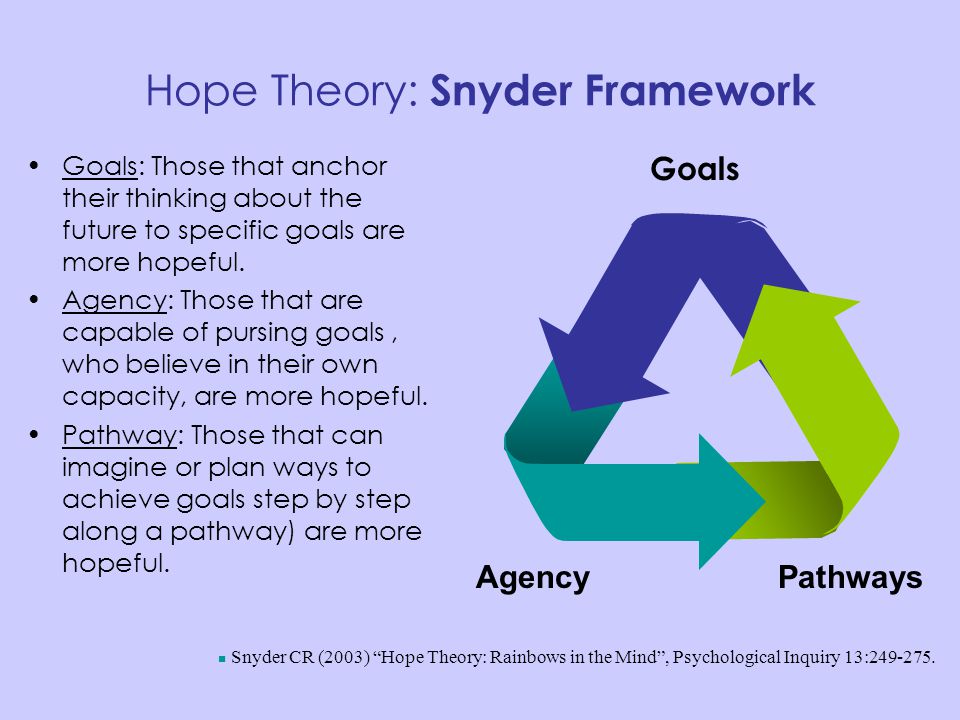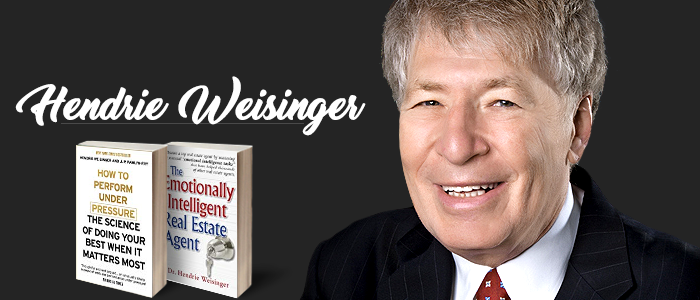These days, I often think of one of one of my graduate school professors. His name was CR Snyder and I doubt you know the name unless you are schooled in positive psychology. Through long discussions and being under his supervision, I got to know him well and when I graduated, my impression was he was an arrogant guy. Forty years later, I think of him as a brilliant guy.
Hope Theory
Rick, as his students called him, was the creator of “Hope Theory” and if you asked him to explain he’d answer, “the perceived capability to create pathways to desired goals and to motivate oneself while thinking about those pathways.” His three main concepts were goals, agency, and pathways. The goals represented approaching life in a goal-oriented way. The pathways were finding different ways to achieve the goals that someone creates. The agency was the actual act of believing that a person can prompt change and achieve the goals that they set out for themselves. “I know I can do this!” is a high will power belief. Dr. Snyder basically characterizes the hopeful thinkers as people who can form goals and work towards them.
Rick, who is recognized as one of the three founders of the Positive Psychology field, went on to do over two hundred studies that show hope has served man well. “Hopeful” individuals show higher self-esteem, more meaning in life and happiness, cope better with injuries, disease, and physical pain, excel in academics from elementary to graduate school perform better in sports and are more productive in work.
I can list dozens of management and leadership skills but I believe the importance of all of them pale in comparison to the skill of creating hope. If you can’t make yourself hopeful, you lack resiliency and if you can’t make your team hopeful, you can count on the fact they will come in last.
Building Resilience
So, the next time you feel down and out or your team suffers a setback and things look glum, apply these two tips and you ‘ll find yourself bouncing back, or as some say, resilient.
- Create “will power” by establishing goals that provide purpose and meaning. These type of goals are physically arousing and translate into directed energy. After a setback or in times of adversity, reiterate your meaningful goals, purpose and meaning and you will begin to feel resilient.
- Create Pathways. Brainstorm and problem solve obstacles away by creating and innovating new routes that can help you achieve your goal. Break each down into a simple step and each one taken, will increase the individual’s will power to continue. The individual becomes resilient because he or she is hopeful they will make it.
Remember, as Andy Dufrense told Red, “Hope is the best of all possible things.”
The Snyder Hope Framework
This is something new that I found when I was researching rainbows. Something called the “hope theory” exists, where the word rainbow is used as a symbol for representing a theory. The hope theory is defined as the perceived capability to create pathways to desired goals and to motivate oneself while thinking about those pathways (1 Snyder).

Snyder was fascinated by the concepts of hope and forgiveness. Throughout his career, he published six books about Hope Theory, and 262 articles about the impact that hope can have on aspects of life such as health, work, education, and personal meaning. His theory had three main points to it. The three main concepts he discussed through it was goals, agency, and pathways. The goals represented approaching life in a goal-oriented way. The pathways were finding different ways to achieve the goals that someone creates. The agency was the actual act of believing that a person can prompt change and achieve the goals that they set out for themselves. Snyder basically characterizes the hopeful thinkers as people who can form goals and work towards them.
About Dr. Hendrie Weisinger
Dr. Hendrie Weisinger is a celebrated, influential, world renowned psychologist. A New York Times bestselling author, he is a leading authority in the application of Emotional Intelligence, an expert in Anger management, and the originator of the highly regarded techniques of Criticism Training, and the originator of the emerging new field, pressure management. Dr. Weisinger is the author of many successful books, including: Nobody’s Perfect, Anger Workout, Anger at Work, Emotional Intelligence at Work,The Power of Positive Criticism and the New York Times best-selling book Performing Under Pressure. Dr. Weisinger’s latest book, The Genius of Instinct introduces the principles of evolutionary psychology to everyday life.
References:
Snyder, C. R. “Hope Theory: Rainbows in the Mind.” Psychological Inquiry 13.4 (2002): 249-75.
